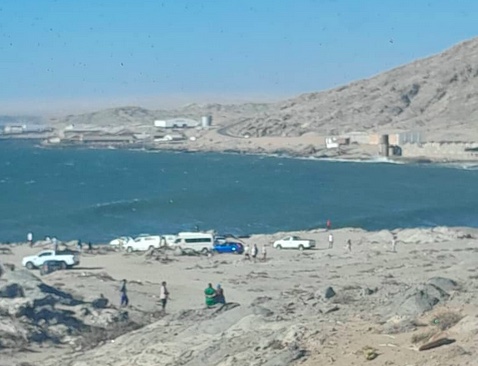Namibia’s exports have dropped by almost 50% to N$4,8 billion in July.
According to the country’s latest trade statistics from the Namibia Statistics Agency, it stood at N$9,4 billion in June.
Meanwhile, the country’s import bill stood at N$7,9 billion, a 23,1% decline, further translating to a deficit of N$3,2 billion.
The drop in the value of exports is due to at least 41,2% less copper being exported over the review period.
According to the trade statistics released yesterday, the widening trade deficit from N$902 million in June 2021 was due to a decline in the exportation of mineral products and fish.
Copper declined by N$972 million, precious stones (diamonds) by N$282 million, and fish by N$198 million.
Imports saw a decline in copper, petroleum oils, precious stones (diamonds), copper ore and concentrates, and motor vehicles.
Ores and concentrates declined by N$980 million, copper by N$667 million, precious stones (diamonds) by N$105 million, and vehicles by N$85 million.
The country’s imports from Asia, Africa and the United States all fell, but importing from Europe increased.
The value of goods bought from Europe rose by N$651 million to N$1 billion, whereas Namibia’s exports to the continent decreased by N$88 million.
According to a Simonis Storm Securities update, major export and import products continue to be dominated by commodity categories.
Commodity-led economic growth is limited in creating jobs, given the capital-intensive nature of the mining sector.
“Commodities from our local mines constitute about 60% of total exports. Standard trade theory would recommend that Namibia focuses on its comparative advantage and the resources which are in abundant supply. Given that labour, which is unskilled to a great extent, is in abundant supply, Namibia should focus on processes and activities which make extensive use of labour,” says Simonis Storm.
In light of this, the firm says the Namibia Investment Promotion and Development Board and the National Planning Commission (NPC) have endeavoured to find growth opportunities within Namibia to diversify the country’s export product mix and focus on the manufacturing of alternative products which Namibia is capable of producing.
The NPC has identified certain industries, such as mining and aims to pursue opportunities in alternative industries to create jobs.
One main factor underpinning this strategy is to increase the complexity of Namibia’s product offering to local and international markets.
This will be done by importing skills and training Namibians in certain complex manufacturing activities.
Email: bottomline@namibian.com.na
Stay informed with The Namibian – your source for credible journalism. Get in-depth reporting and opinions for
only N$85 a month. Invest in journalism, invest in democracy –
Subscribe Now!







